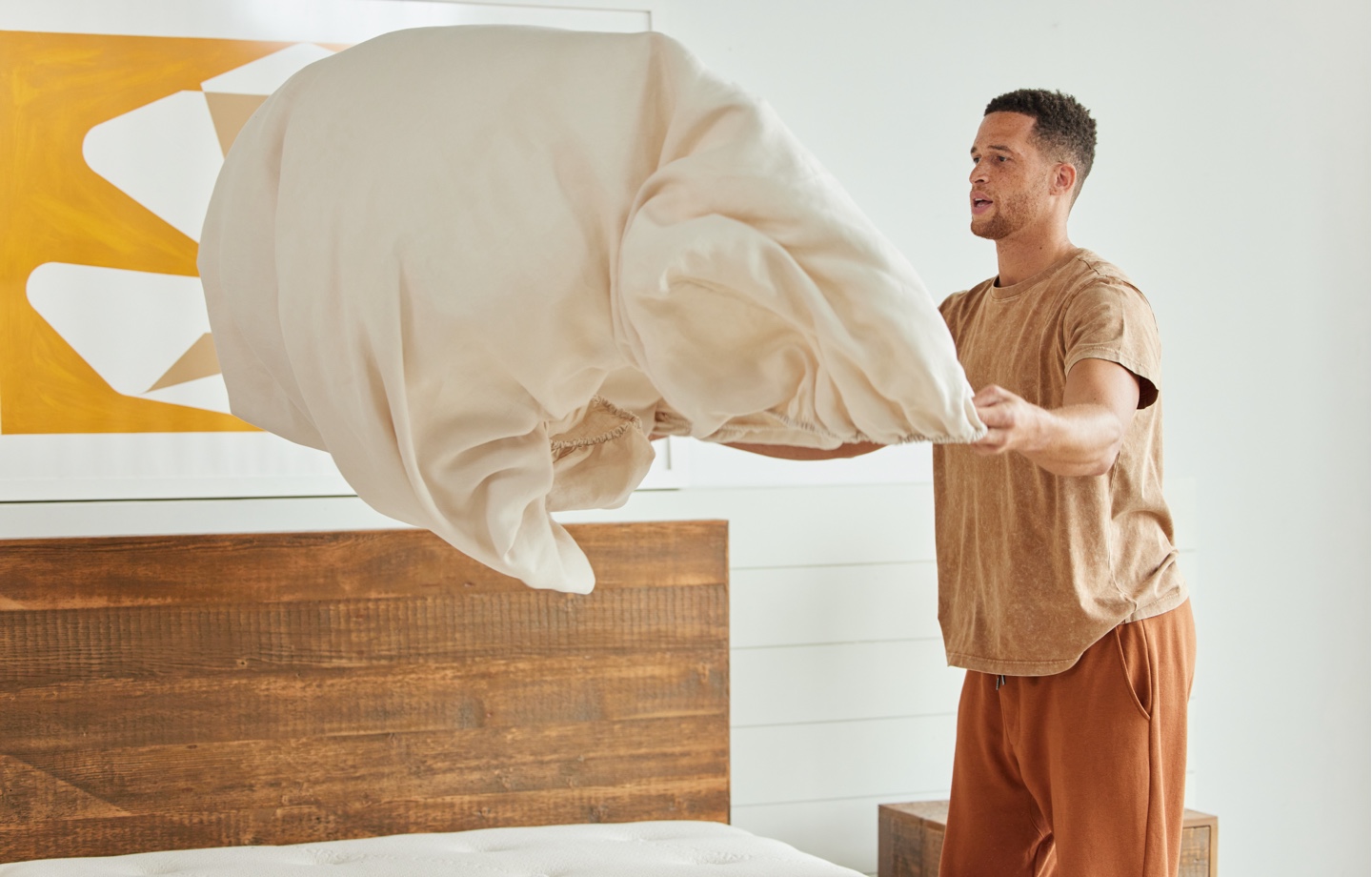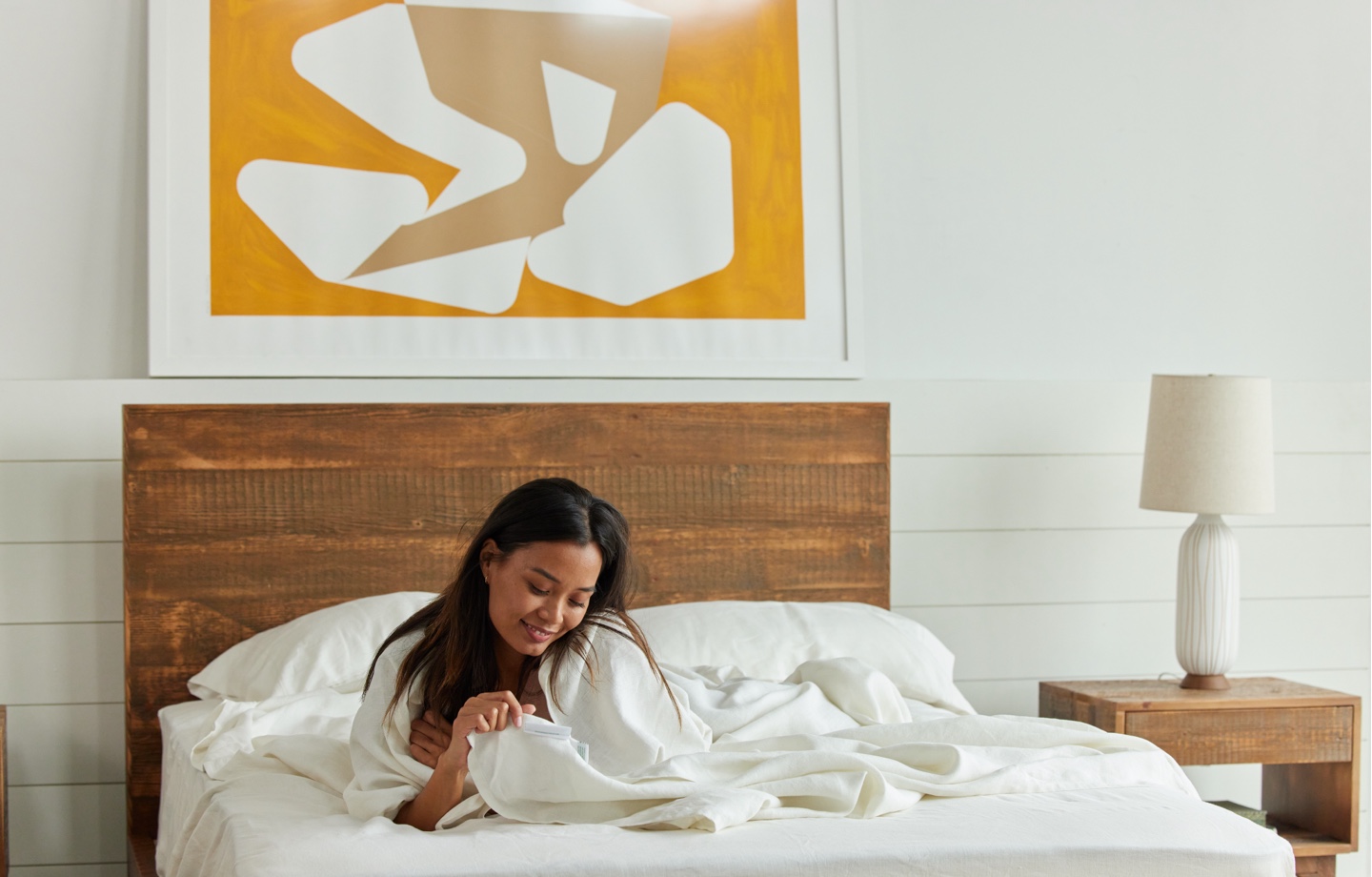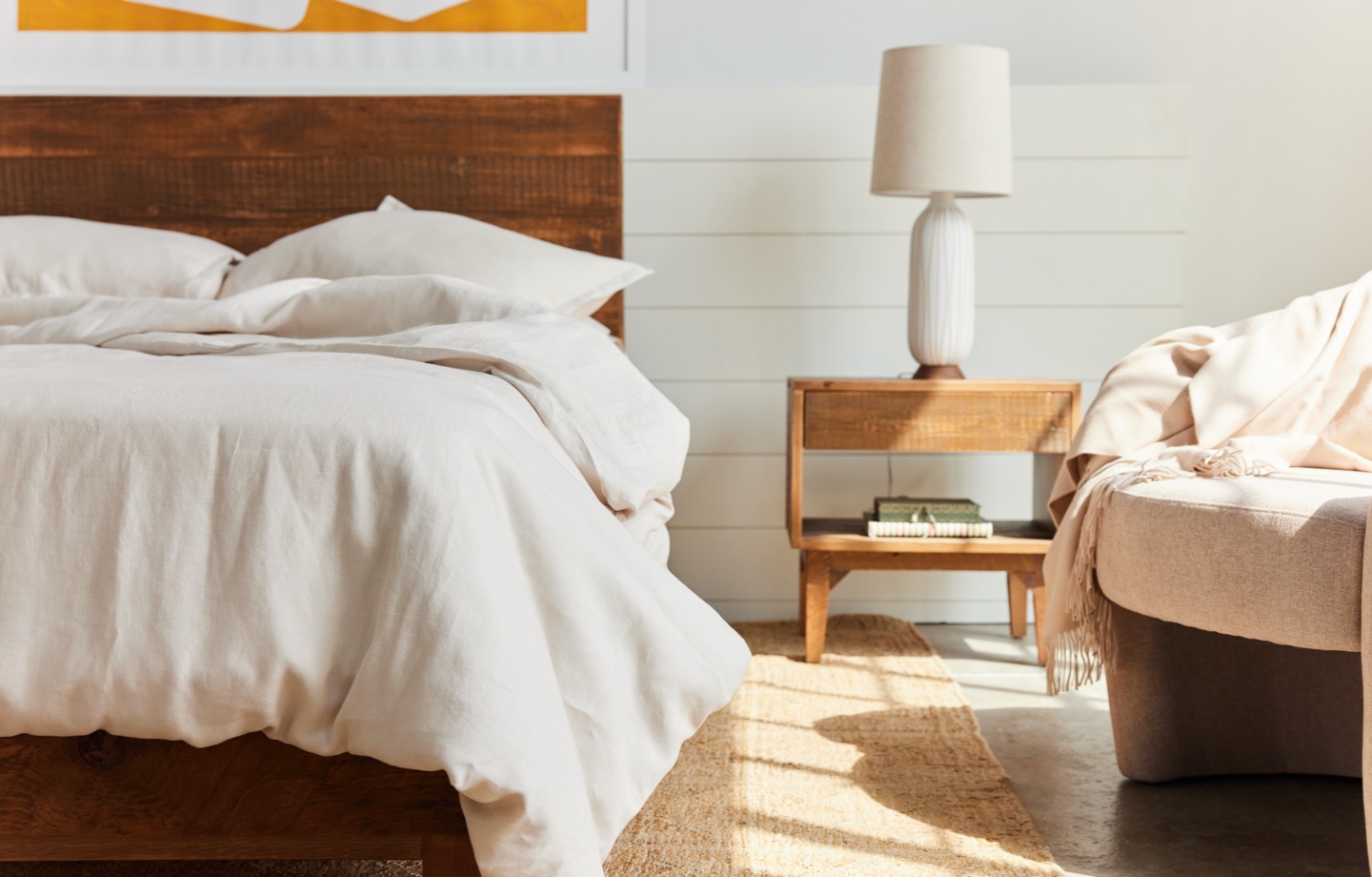Sleep is more than a numbers game. Setting yourself up for a night of quality sleep is essential to waking up rested.
Even the best sleepers have had one of those nights. You know the ones — the nights when every sound jolts you awake or a little person (or animal) demands attention that requires getting out of bed. You may still squeeze in a full seven or eight hours of shut eye, but you wake up the next morning feeling groggy and tired. Why, exactly, is that?
As it turns out, sleep quality and sleep quantity are two very different things. You can slumber the recommended amount of time, but if the sleep you get isn’t productive — it takes a while to drift off or you’re constantly getting up — it’s unlikely you’ll wake up refreshed. Much like other things in life, there’s more to restful sleep than just hitting a number, though that’s still a good metric to use.
Read more: 7 Sleep Myths — Debunked
“What sometimes gets put out there, unintentionally, is this message that everyone should be sleeping eight hours from 10 to six, which is not true and not helpful,” says Dr. Fiona Barwick, clinical associate professor of psychiatry and behavioral sciences in sleep medicine at Stanford University. “Sleep is more complicated than people realize.”
According to Dr. Barwick, sleeping at the wrong time or on an inconsistent schedule can lead to poor sleep efficiency, which is the measure of “your total time of sleep compared to your total time in bed. The informal definition of normal sleep for an adult is less than 30 minutes to fall asleep, less than 30 minutes awake at night.”
So how can you set yourself up for slumbering success? Here are a few ways to boost your nightly sleep quality.
“Sleep is more complicated than people realize.”
A lot has been written about the perks of being an early bird, so much so that night owls may be tempted to start rising with the sun. However, going against your natural schedule may do more harm than good when it comes to sleep quality. Our sleep types are determined partly by genetics, which means there’s a natural reason why some wake at the crack of dawn, while others stay up late.
“How long we sleep does make a difference, but so does sleep timing,” says Dr. Barwick. “If someone’s a true night owl and they try to go to bed at 10 p.m., that’s not a not gonna work. They’re gonna lie there for hours.”
She sees this happen often with couples who have varying circadian rhythms.
“You have a morning type and an evening type and either one or the other is going to try to go to bed with their partner,” says Dr. Barwick. “They try to do a kind of compromised sleep schedule, which means neither will get great sleep.”

Read more: Why Listening to Your Circadian Rhythm Is Essential to Good Health
If you follow one sleep schedule for weekdays and abide by another on weekends (or don’t have one at all), then don’t be surprised if your sleep quality takes a dip.
“The regularity of your sleep schedule matters,” says Dr. Barwick. “There’s actually some interesting research coming out more recently indicating that how consistent your sleep schedule is may be as important as how much sleep you get.”
So stick to a schedule as much as you can — that means waking up at the same time every day, even on nights you’re up and out later than usual.
We’ve all had those mornings when we just want to stay curled up in bed. With work from home schedules, it’s especially enticing to simply pop open our laptops while still snuggled under the sheets. But most sleep experts, including Barwick, advise squeezing in some activity and sunshine as soon as possible.
“Sleep is really a 24-hour undertaking. What we do during the day matters as much for our sleep as what we do in the evening or at night if we happen to be awake,” says Barwick. “Get up promptly in the morning rather than lingering in bed and have a good morning routine. The moment you get out of bed, you actually start building your sleep drive for the next night.”

Read more: Why Morning Lights Is Fundamental to Wellness
You’ve heard it time and time again: Staring at screens during the night hours is the biggest sleep quality offender. “Without question, probably the biggest thing anyone could do for themselves to help with their sleep is stop their screens an hour before bedtime,” says Dr. Barwick.
And it’s not just because of the blue light that’s emitted by our devices. The content consumed — especially with the neverending 24-hour news cycle — plays just as big of a role in keeping us up past our bedtime. “There’s no transition out of this high stress state into a more relaxed state and that will definitely lead to worse quality sleep,” she says.
Even if you have a poor night of shuteye, it’s important not to worry too much about it (unless, of course, there are other underlying issues that require expert attention). It’s similar to how experts recommend getting up if you have trouble falling asleep. “You don’t want to lie in bed, tossing and turning, getting frustrated, starting to worry or think or plan,” says Dr. Barwick. “Now, not only are you more activated, so you’re going to be awake longer, but you’ve associated that whole thing with a bed.”
The same applies to worrying about sleep quality. “If they don’t sleep well, then they’re worried about sleep the next night and that actually makes sleep worse,” says Dr. Barwick. Instead, focus on the things you can do for better sleep health. Create a relaxing wind down routine, sleep and wake at consistent times, and don’t force it.

Read more: How Hot Baths Improve Sleep
Have feedback on our story? Email [email protected] to let us know what you think!

Shop Pillows
The Essential Organic Pillow Collection
Gentle, breathable, non-toxic support.







